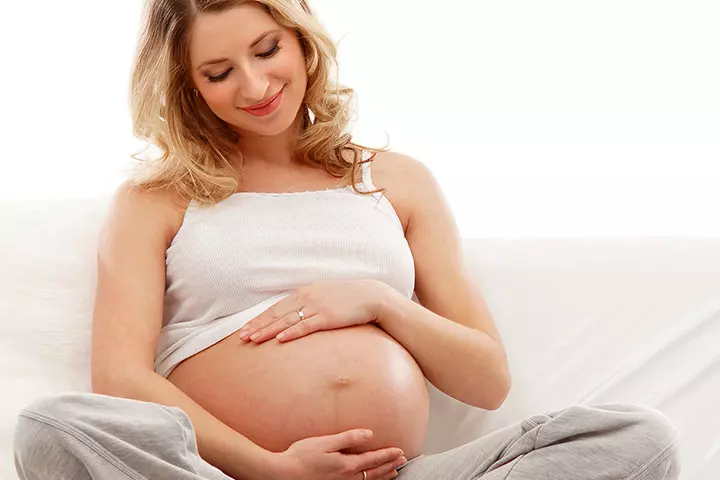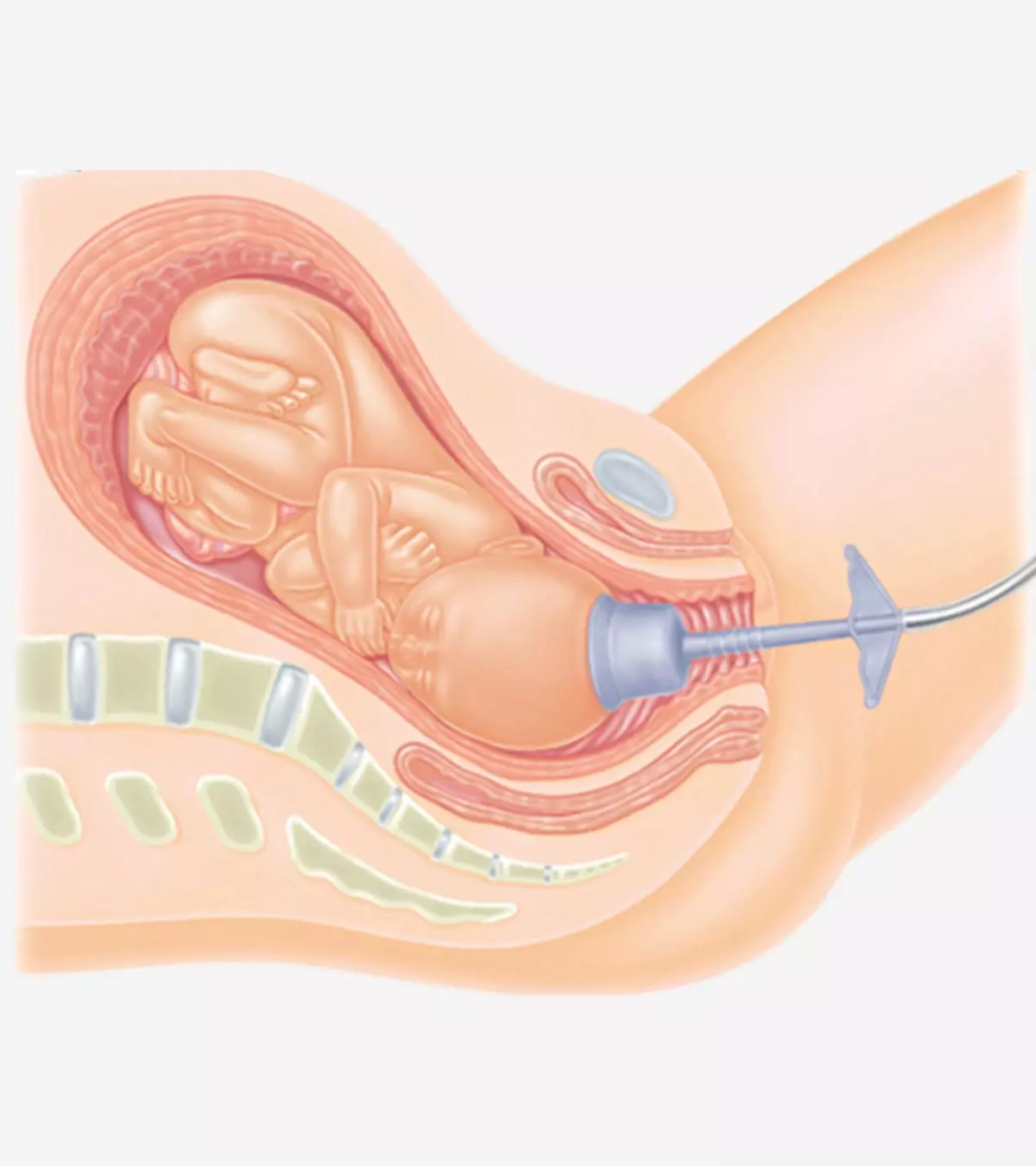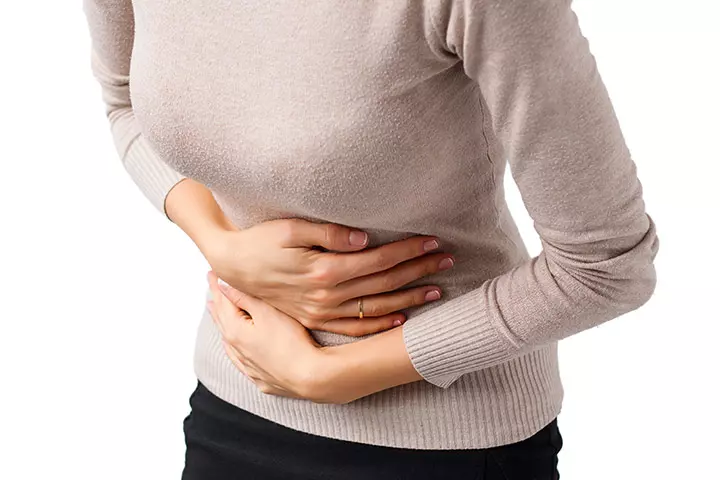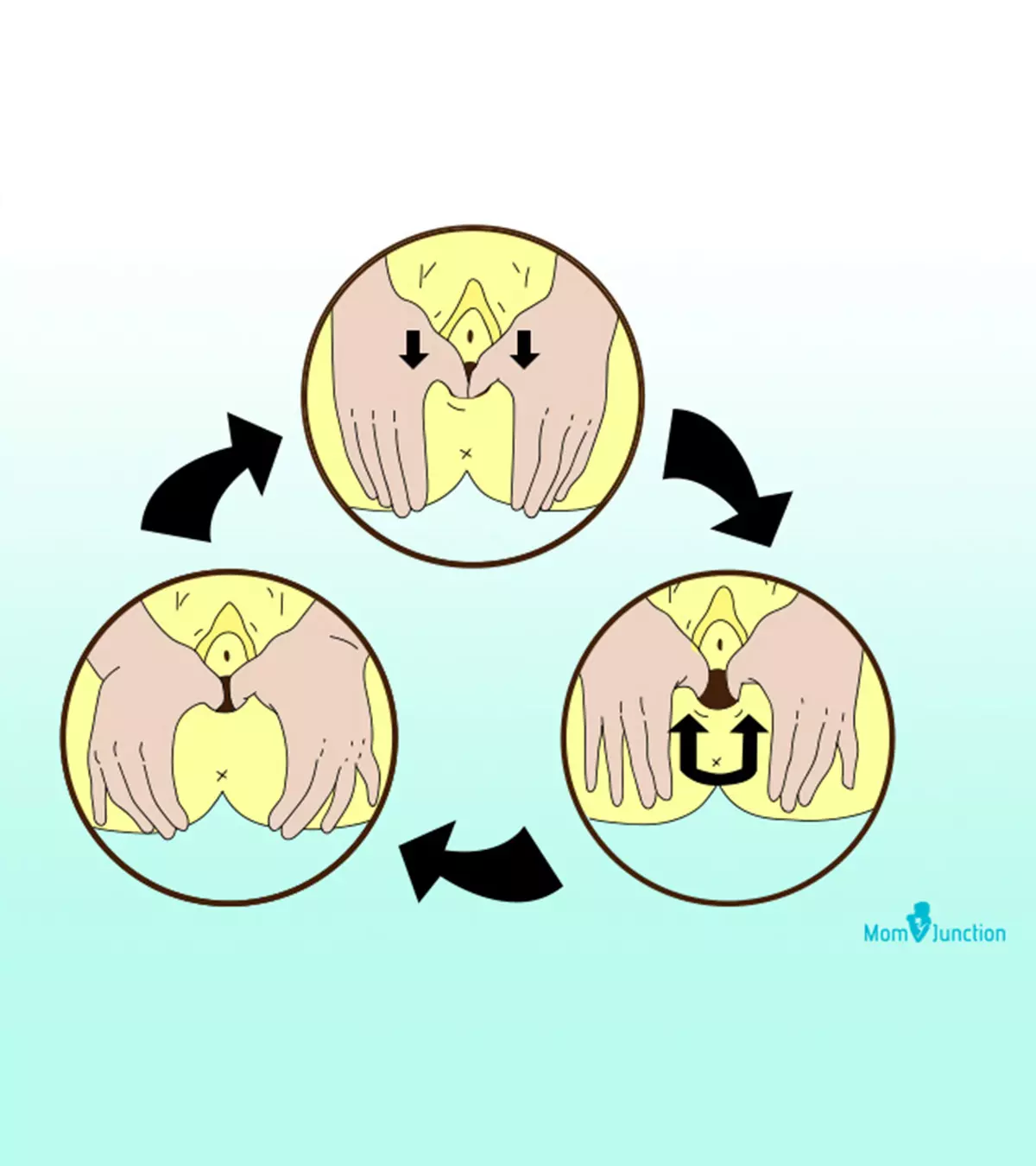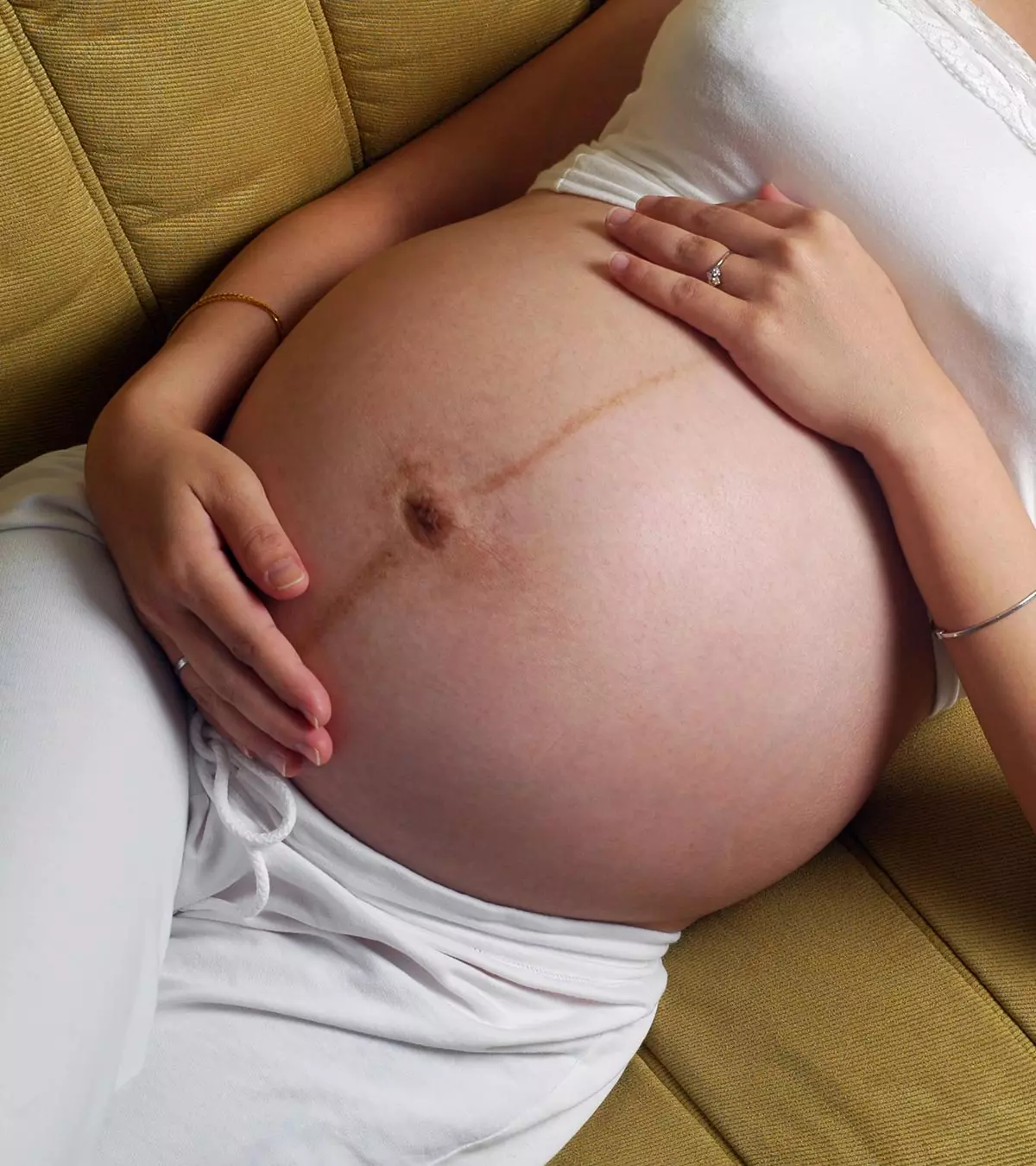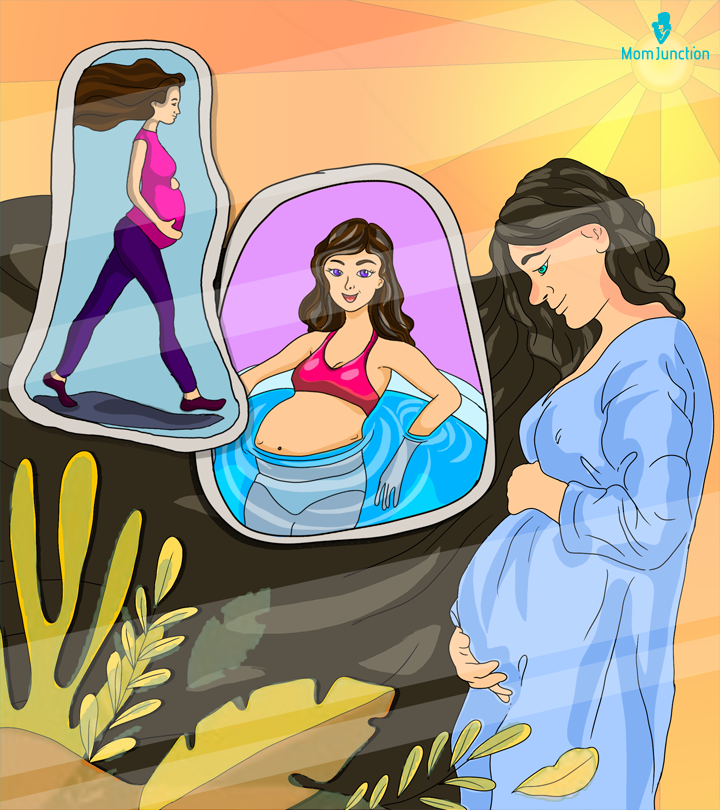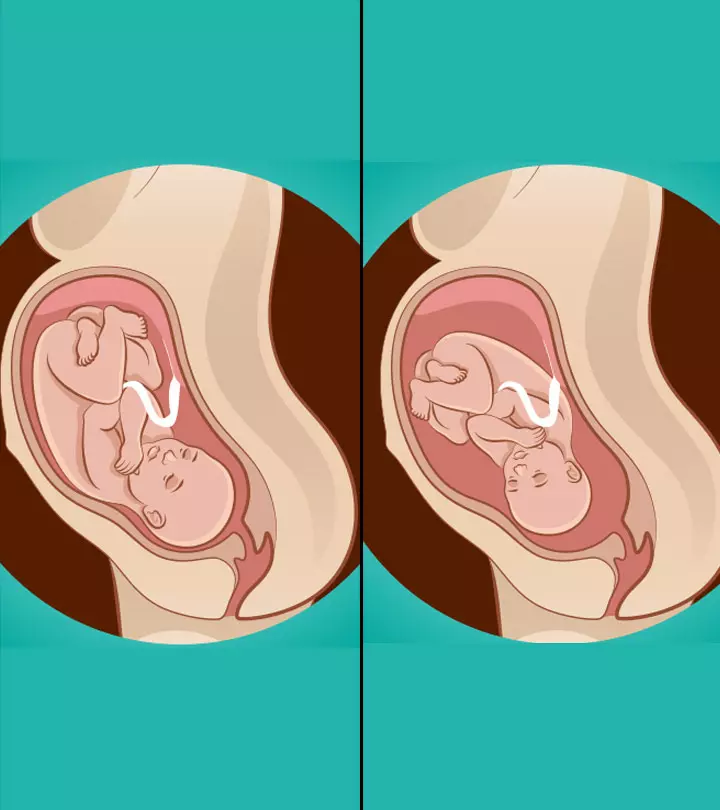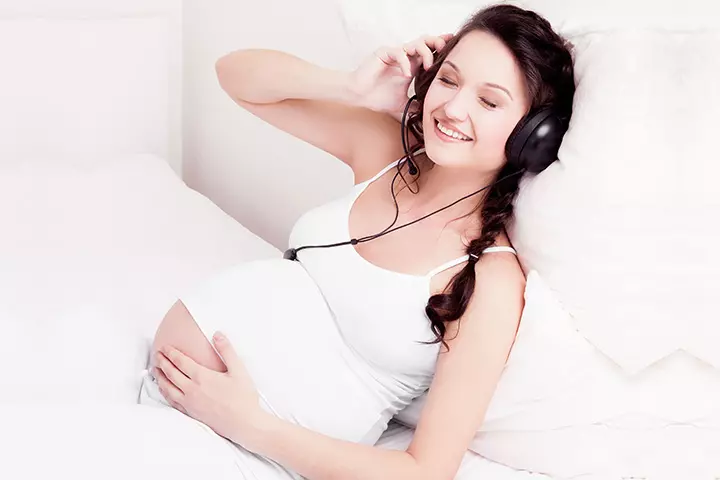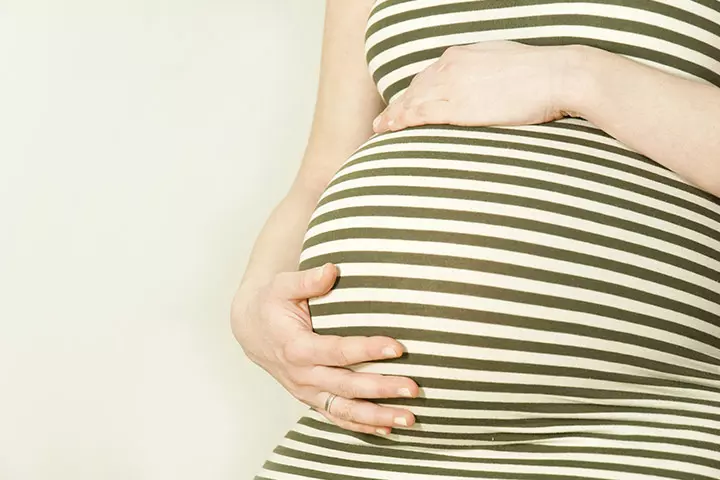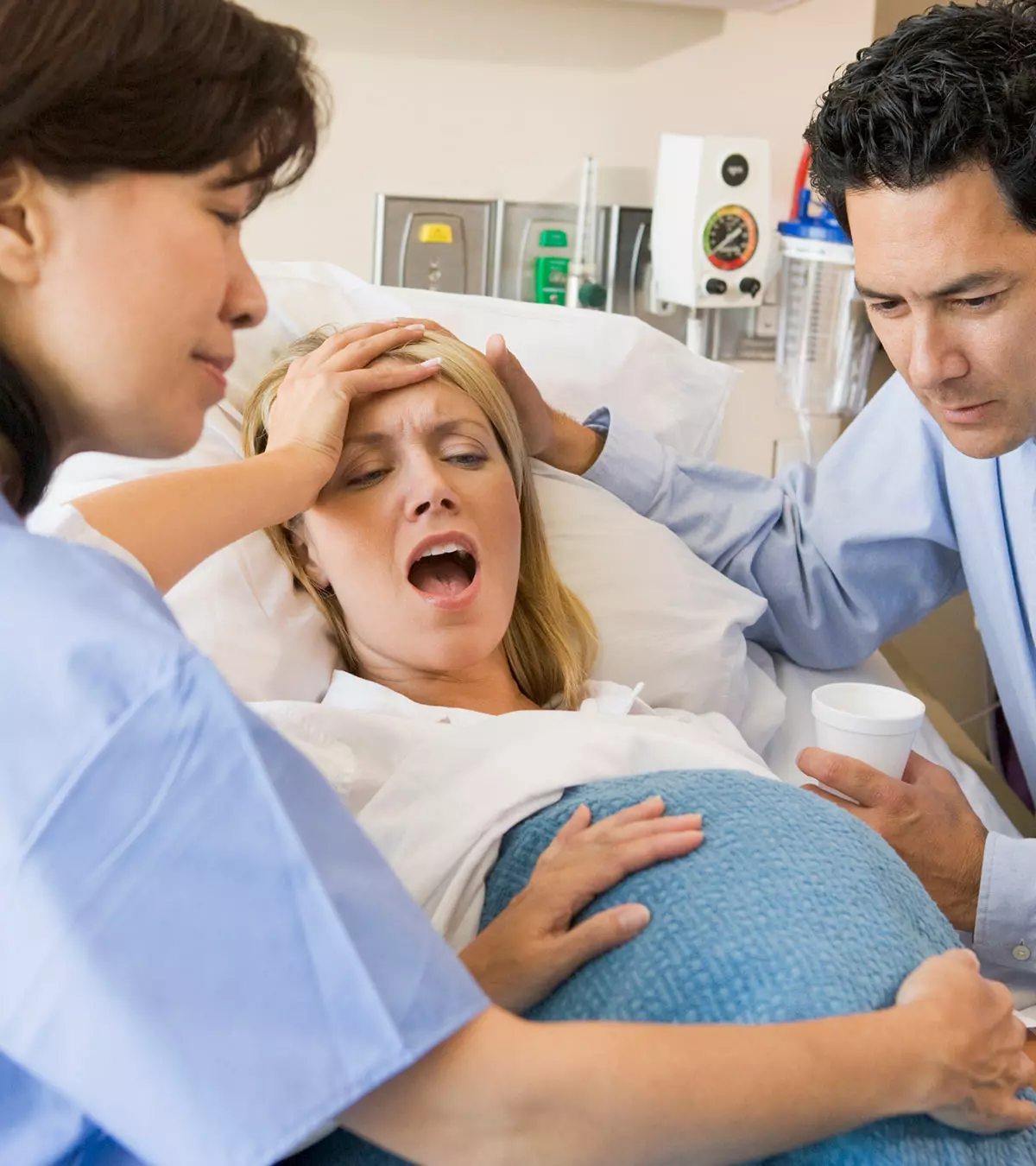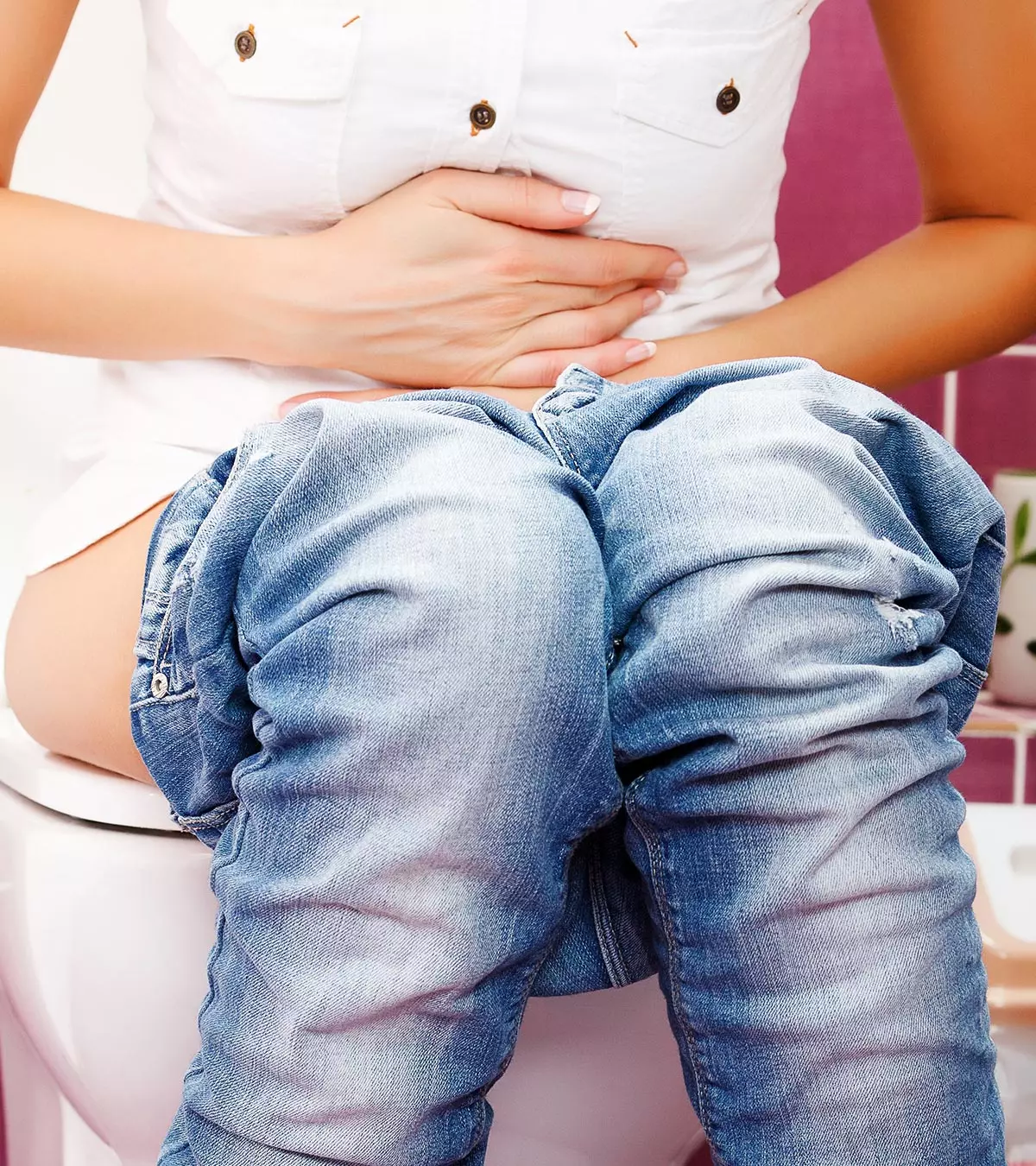
Image: Shutterstock
Postpartum Constipation is a common occurrence.
You may experience constipation after a C-section or even after vaginal childbirth. Even women who did not experience it during pregnancy may go through it after childbirth. It can be due to different factors such as surgical incisions, hemorrhoids, hormones, or the administration of iron supplements. Some women may also experience injured anal sphincteriA group of muscles that surrounds the anus and regulates its opening and closing. or pelvic floor muscles during labor, increasing the probability of constipation (1).
Read on to know about constipation after delivery, including its causes and treatment.
Key Pointers
- Women may experience constipation after delivery due to various factors including bowel movements during labor, enema, digestive issues, and hormonal changes.
- Proper treatment and a fiber-rich diet can help alleviate postpartum constipation within a few days.
- Including fruits, green leafy vegetables, whole grains, and fluids, as well as consuming laxative-rich foods like prune juice, can help with constipation.
- Postpartum constipation can aggravate hemorrhoids and may signal other medical issues that require prompt medical attention.
What Are The Causes Of Postpartum Constipation?

As said above, this discomfort could be due to any of the factors taking place before, during, or after pregnancy (1).
- If you had long labor without food, or had bowel movements during labor, or had an enema, you may suffer from constipation for a day or two. All these conditions make your intestines empty and, therefore, cause constipation.
- If you had a cesarean section, it might take three to four days for your bowel to function normally.
- High progesteroneiA female reproductive hormone that plays an important role in menstruation, pregnancy, and breastfeeding. levels due to hormonal changes during pregnancy can cause chronic constipation after delivery.
- Systemic narcotics (such as pethidine and diamorphine) (2) to ease labor discomfort or pain relievers for afterbirth pains could slow down the bowel movements.
- If you are breastfeeding, you will be taking prenatal vitamins, which may also cause constipation. You should check with your doctor for formulations that don’t increase the risk of constipation.
- The iron supplements taken while you are pregnant could also be a cause for this condition.
- Delivery through forceps or ventouse methodsiAn type of assisted delivery where a suction cup is placed on the child’s head and pulled to help them pass through the birth canal. could also cause bowel issues leading to constipation.
- A severe tear during delivery. As per the data published in the National Health Service (NHS), about nine out of ten first-time mothers who give vaginal birth will have some type of tear, graze, or episiotomy.
- An episiotomy (incision made in the perineum) can cause sore perineum, which may lead to constipation.
- The digestive system slows down during labor, and this could continue even after delivery.
 Quick fact
Quick factHow Long Does Postpartum Constipation Last?
In most cases, constipation will end within a few days if you take proper steps to treat the problem (3).
It all depends on the cause of your constipation and how you treat it. The most important thing is to be proactive and follow the steps correctly.
How To Ease Constipation After Delivery?
1. Fiber Rich Diet

High fiber foods (3) can be your best defenses against constipation as they help improve your bowel movements. Diet changes are encouraged to include foods like wholegrain cereal and bread, beans, brown rice, fresh fruits, and vegetables in your everyday diet.
Legumes, navy beans, kidney beans, chickpeas, lentils, and soybeans add soluble fiber to your diet and help the bowel movements become regular. Take these in combination with other foods to prevent excess gas and bloating.
2. Consume Plenty Of Water
Fluids can make your feces softer and easier to pass out of the body. The atmosphere in the hospital will be dry, and you will quickly get dehydrated without even realizing it. Even while you are breastfeeding, you will often feel thirsty, so you need to up your fluid intake. Drink at least six to eight glasses of water every day. Also, drinking warm liquids soon after you wake up from sleep helps you move on normally (3).
 Research finds
Research finds3. Consume Prunes or Prune Juice
Prunes or prune juice will help treat constipation. Also known as dried plum, this fruit is rich in dietary fiber with five fruits having almost 3g of fiber. They also contain sorbitol, a natural laxative which eases bowel movements. Also, findings from a study published in Alimentary Pharmacology and Therapeutics, say that eating prunes will soften feces and increase the frequency of bowel movements per week (3) (4).
4. Dry Fruits
Dry fruits may help in relieving constipation. So, fix a date each for figs, raisins, dried apricots, and prunes in your diet.
5. Go For A Stroll

Decreased activity can result in constipation. Taking a walk and moving your body helps move your bowels. Walking may be painful in the beginning if you are recovering from an episiotomy or a C-section. So, begin this when you are comfortable and have short strolls to make your sluggish bowels work properly. Sitting or lying down for long periods will aggravate constipation (3).
6. Stool Softeners:
You can ask your doctor or midwife for stool softeners. These are usually prescribed when you are suffering from postpartum hemorrhoids or severe tear at the sphincter. They also work if you are on a high dosage of narcotics for pain relief or iron supplementation for anemia (5).
7. Breastfeed Your Baby:
This can help relieve constipation. When a baby is sucking, it stimulates the uterus to contract and helps in easy bowel movements.
8. Avoid Processed Foods:
Foods like doughnuts, white bread, potato chips, unripe bananas, chocolate, fast-food burgers, and sausages should be avoided. Also, avoid foods high in sugars and fats like cheese, ice-cream, and dairy products as they may aggravate or cause constipation after c-section.
9. Do Not Ignore The Urge To Move Bowels:
When you have the urge to go to the toilet, do not restrain yourself from going. The stool gets harder if you wait long, and it will make the pain worse. Sit properly on the toilet seat, and do not hover or perch over it.
A tear or a C-section or stitches may create a fear of more pain, and you will restrain from passing stools. But should you really worry about pooping?
Does It Hurt When You Poop?
You should stop worrying as it doesn’t hurt much when you poop after your delivery. The perineum, which is the area between the vagina and anus, will usually become numb as your nerves in and around the vagina stretch during the labor process. So, your first poop may not be painful.
Once the nerves in the perineal region recover, you may start feeling the pain when you poop. It is because the pelvic floor muscles and perineum move down while you are pushing the stool.
But the anxiety about pooping after labor can make things worse. When you get anxious, the back passage tightens rather than opening. To overcome this, distract yourself by reading a book or a newspaper while you are on the WC.
You Can Follow These Steps When Going To Loo
- Sit properly on the toilet seat and do not hover or perch over it.
- Tip your toes while sitting so as to raise your knees higher than your hips. You can use a small chair or a stool to raise your knees and rest your elbows on them. It resembles a squatting position, which is ideal for bowel movements.
- Now move down and sit erect until your stomach muscles start working. When you do this, you can feel that they are tightening and relaxing.
- Do not worry that your stitches may tear when you are answering the nature call. Fold a sanitary pad in half and place it over your stitches or perineum region. It supports your pelvic area and can give you the confidence that your stitches will not open.
- Using the pad will stop pelvic floor muscles and perineum from moving down and relieve pain due to the tear.
- Apply light pressure to the perineum to stimulate a reflex and improve the muscle tone in the rectal region. This pushes out the stools quickly.
Exercises That May Help Relieve Postpartum Constipation
Forcing or pushing may not help with constipation as it may only cause soreness. There are some bracing and bulging exercises, which may assist you to empty the bowels without putting any pressure on your body (5).
Place your hands on your tummy.
- Pull in your tummy muscles so that your stomach flattens, and waist widens. It is known as bracing.
- Now push the tummy muscles out into your hands, and you will notice that you make an “ugh” sound while doing this. It is known as bulging.
- Do around ten braces and bulges, and then finish the exercise with a long bulge that lasts for three to five seconds.
- While doing the final bulge, try relaxing your pelvic floor. You will feel your bowel opening soon after the bulge.
- If this doesn’t help, try doing a few more.
- You can also do some pelvic floor exercises to relieve constipation.
- Abdominal massages may also help.
 Quick fact
Quick factLaxatives To Relieve Constipation

If you find no relief even after three days, you should check with your doctor. Laxative use may be suggested (5) to stimulate your gastrointestinal tract’s natural rhythm. They offer short-term relief but can sometimes lead to mild stomach cramps.
Your doctor may start with a liquid laxative, which you can swallow. If this too does not work, after three to four days, they may give you a laxative suppositoryiRectally administered laxatives to promote bowel movement and relieve constipation. , which can be inserted into your bottom.
Remember: Never buy laxatives over the counter. Always go to a doctor because your requirement will depend on whether you are breastfeeding or taking any other medications.
 Be watchful
Be watchfulWhen Should You Worry About Constipation After Childbirth?

Postpartum constipation is treatable. This is not a serious complication, but sometimes it is an indication of other medical conditions.
If severe constipation can be associated with bouts of diarrhea, abdominal pain, or the presence of mucus or blood in feces, you should immediately check with your doctor.
Constipation can aggravate other digestive conditions like hemorrhoids (swollen and inflamed veins in the rectum and anus). Passing a hard stool or straining during a bowel movement will worsen hemorrhoids.
Hemorrhoids are usually experienced during pregnancy, and they disappear once the pelvic pressure is relieved after delivery. Though they are rare, they cause extreme pain and rectal bleeding, which requires immediate medical attention and pain medications. Piles or anal fissures can aggravate constipation. So, it is better that you check with your doctor if you have them.
Postpartum constipation may occur due to factors such as hormone fluctuations, slowed bowel movements, iron supplements, injury to the pelvic floor muscles, or surgical incisions. However, you can ease constipation by increasing your fiber intake by taking fiber-rich foods, prunes or prune juice, dry fruits, and lots of water. In addition, you can try walking or light exercises to ease discomfort. The condition is not a cause of concern, but you should consult a doctor if you experience excessive pain or you feel the need to take medications such as stool softeners or laxatives.
Infographic: Tips To Ease Constipation After Delivery
Constipation is a common concern for mothers in the postpartum period. While it typically resolves within a few days, managing this discomfort alongside new parenting responsibilities can be challenging. To help you manage this, we have created an informative infographic with simple tips to relieve constipation and make your postpartum journey easier.

Illustration: Momjunction Design Team
Frequently Asked Questions
1. Does breastfeeding cause constipation?
Constipation is common due to the extensive hormonal changes in the body postpartum. However, no scientific studies have linked breastfeeding to maternal constipation.
2. Can stool softener affect my milk supply?
No. Using stool softeners or laxatives does not affect the quality or supply of your breastmilk.
3. How can postpartum constipation affect a new mother’s ability to care for her newborn?
Postpartum constipation affects a new mother’s quality of life by adding to the pre-existing stress after childbirth (8). It results in significant discomfort and pain, depleting the mother’s energy levels and overall well-being. Furthermore, it hinders her ability to provide adequate care to her newborn
Illustration: Causes Of Postpartum Constipation And Tips To Get Relief
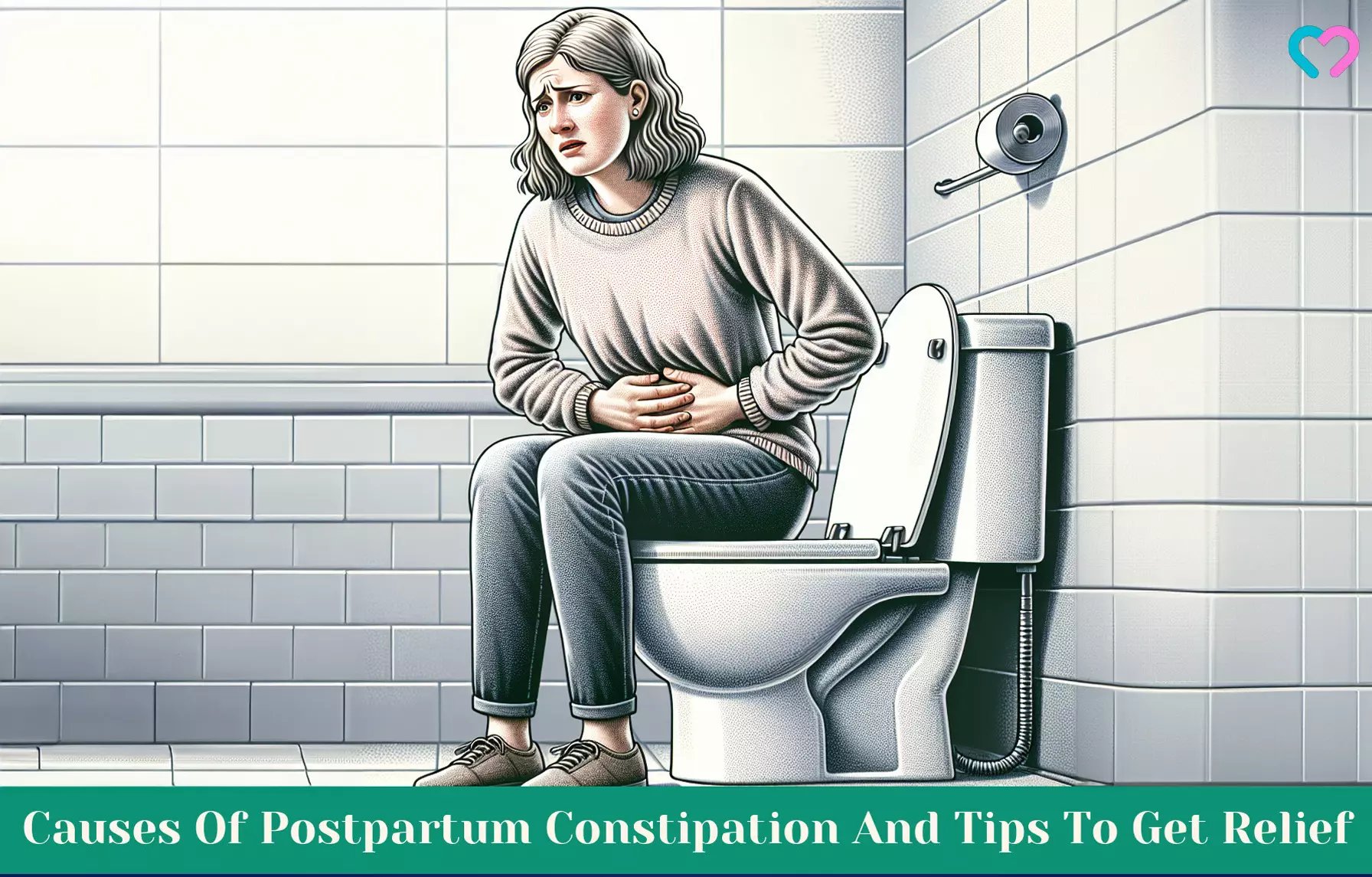
Image: Dall·E/MomJunction Design Team
Learn how to manage constipation after surgery with simple tips and tricks. Watch this informative video to gain insights and tips on how to get relief and feel better fast!
References
1. Turawa EB, et al.; Interventions for treating postpartum constipation; Cochrane
2. Fairlie FM, et al.; Intramuscular opioids for maternal pain relief in labour: a randomised controlled trial comparing pethidine with diamorphine.
3. Common Conditions; The Rochester Meditation Center
4. Lever E, et al.; Systematic review: the effect of prunes on gastrointestinal function.
5. Constipation In Pregnancy And Breastfeeding; The Royal Hospital or Women
6. Emma D et al., Diet, physical inactivity and the prevalence of constipation throughout and after pregnancy; NCBI.
7. Turawa EB et al., Interventions for preventing postpartum constipation; NCBI.
8. Amber Thompson; The Effects of Early Laxative, Diet, and Exercise Education on Postpartum Constipation Prevention; South Dakota State University
Community Experiences
Join the conversation and become a part of our nurturing community! Share your stories, experiences, and insights to connect with fellow parents.
Read full bio of Dr Sachchidananda Maiti
Read full bio of Rebecca Malachi
Read full bio of Swati Patwal
Read full bio of Aneesha Amonz








